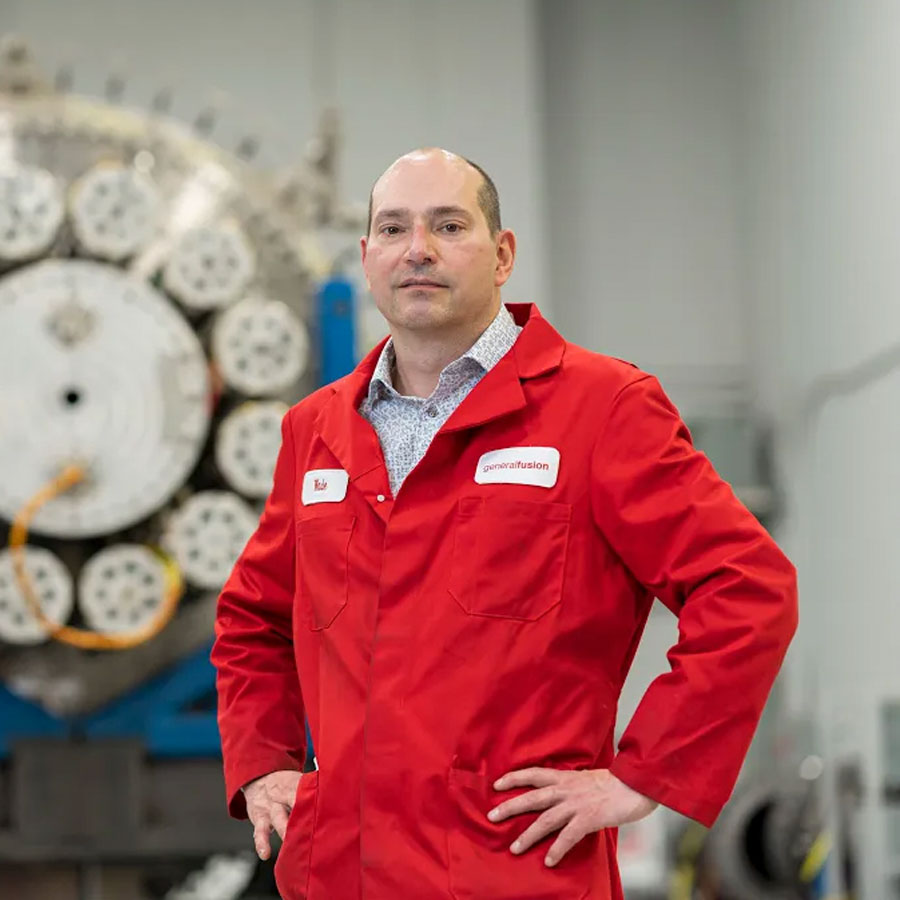The following by Michael Delage, General Fusion’s VP Technology and Corporate Strategy, appeared as an op-ed in the Vancouver Sun on October 28, 2015
Opinion: Cleantech needs partners to compete
—–
At the Canadian Energy Summit earlier this year, General Fusion was called upon to help launch an important new study on Canada’s clean technology industry.
The report is a classic case of good news, bad news.
On the good news side, the fourth annual report card by Analytica Advisors found more than 800 cleantech firms in Canada directly employed almost 50,000 people in 2013, making the industry a bigger employer than the aerospace manufacturing sector, logging industries or pharmaceuticals and medical devices.
Now the bad news: Even with $12 billion in exports of manufactured environmental goods, Canada’s share of the booming global market is declining. The study finds that among the world’s top 24 nations exporting environmental goods, Canada has been the third biggest loser of market share since 2008, behind only the United Kingdom and Japan.
The report’s author, Analytica president Celine Bak, told Canadian Press that our clean technology industry could follow satellite, telecommunication and biotech firms that flowered in Canada only to take root elsewhere in the world. Bak pointed to the need for policy co-ordination across federal and provincial jurisdictions to help the industry mature into a globally competitive market force.
“We have a terrific industry that’s creating jobs, but our traction in terms of international trade is not as great as it should be because the (global) market is growing so quickly,” she said. “It should be fairly straightforward to take the next step so that the investments that have been made in early research — the investments in development and demonstrations — now are translated into jobs, exports and environmental stewardship.”
The Canadian government and early stage financiers do invest in innovation and help companies take technology to the point where it can be demonstrated at scale. But more capital may be required to get the technology into a first industrial application, at which point the companies can get big enough to grow on their own. There are very few funds in Canada that can lead a financing for mid-to late-stage companies. We have a lot of great entrepreneurs and smaller companies, but not nearly as many that scale into the 100 -plus employees.
This is a challenge for all of us. When Canadian companies have to scour the world for capital it increases their risk, distracts management teams, slows them down, and results in missed opportunities. Worst of all, firms can be forced to play small instead of thinking big. Canada’s competitors are recognizing their opportunities and moving quickly with strength, trying to stack the deck in their favour.
The cleantech report card wraps it up succinctly: “Canadian clean technology companies are ‘Davids’ who beat the world’s ‘Goliaths’ internationally, but struggle to secure customers at home. In order for these innovation-based companies to grow into large companies, they will need a strong domestic presence from which to derive international credibility.”
Through institutions like SDTC, Canada pointed the way to the world, but now we’re failing to keep up. To ensure that the lion’s share of the benefits and the jobs in clean technology stay in Canada we need to realize this is a team sport, and the cleantech industry, the financial sector and governments need to work together to create a national competitive edge.
For example, policies and regulations governing carbon vary significantly from province to province. If we’re serious about playing as a team and finding ways to be successful economically, a collaborative effort to create a consistent regulatory environment would go a long way in creating a viable domestic market. If there’s a market for our cleantech goods at home, that gives us the springboard we need to compete internationally.
Right across the border, the U.S. is getting its own regulatory house in order. In a recent initiative to set tighter greenhouse gas emissions targets, the Environmental Protection Agency consulted with industry and NGO stakeholders to set attainable national standards — a good example of the kind of incisive cleantech leadership we need in Canada.
Over the past five years, with the support of our global investor base, General Fusion has established a world-class research team and cutting-edge facilities. We have built technologies fundamental to our power plant, and we are now aggressively advancing the development of key subsystems at full scale. And in May, we announced an additional $27 million of financing led by Khazanah Nasional Berhad, the Government of Malaysia’s strategic investment fund.
This puts the company in its strongest financial position since its founding in 2002. It is evidence of the growing recognition of fusion as a game-changing source of energy. This is great news for us and great news for Canada. But while we rightly celebrate the achievements of our industry it is fair to say that finance, both equity and debt, remains the clean technology industry’s biggest challenge.
Prime Minister-elect Justin Trudeau has shown his support for cleantech — he even made a campaign stop at General Fusion’s Burnaby facility. We are encouraged that the new government is committed to getting behind this sector and ensuring that the lion’s share of the benefits and the jobs in clean technology stay in Canada. We can do it, but we need the partners to work together.

